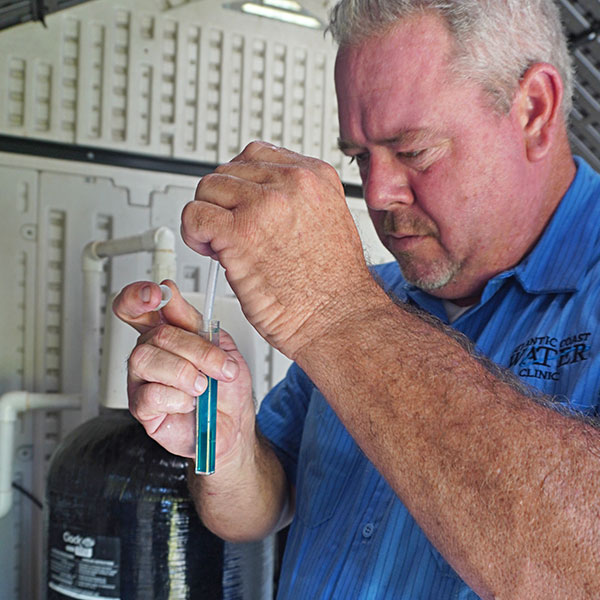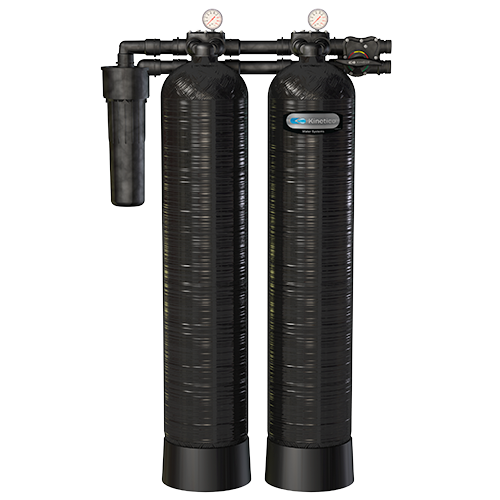Arsenic
Arsenic is a metalloid or semi-metal chemical that naturally occurs in our environment and is commonly found in the air, soil, and water, including the Floridian Aquafer. It is odorless and tasteless. Drinking water from groundwater and well sources is more likely to contain higher arsenic levels than in surface waters like rivers, lakes, and streams. Arsenic is also widely used to manufacture many typical household and agricultural products, including pesticides and fertilizers. Disposal of these products can leach arsenic into the soil and elevate arsenic levels in groundwater wells.
 A study conducted by the Florida Department of Health found that approximately 1 in 3 water wells tested in Central Florida contained high arsenic concentrations in the drinking water. It is reasonable to conclude that elevated levels of arsenic may be in other private wells throughout the state, including Southeast Florida. The Florida Department of Health suggests private well owners in Florida install water filters to reduce exposure to arsenic in drinking water.
A study conducted by the Florida Department of Health found that approximately 1 in 3 water wells tested in Central Florida contained high arsenic concentrations in the drinking water. It is reasonable to conclude that elevated levels of arsenic may be in other private wells throughout the state, including Southeast Florida. The Florida Department of Health suggests private well owners in Florida install water filters to reduce exposure to arsenic in drinking water.
How do I know if arsenic is in my tap water?
Arsenic is an odorless and tasteless contaminant. Your public water utility’s Water Quality Report will list the presence and quantity of inorganic contaminants, including arsenic, present in the water supply. Private well owners should obtain a water test at least once per year to determine if arsenic and other contaminants are in the water.
Is arsenic in drinking water harmful?
Symptoms of arsenic poisoning include abdominal pain, nausea, vomiting, diarrhea, and abnormal heart rhythm. The Florida Department of Health follows the U.S. Environmental Protection Agency’s Drinking Water Standards to limit arsenic levels to a maximum of 10 parts per billion in public drinking water systems.
However, a recent study published by the American Heart Association shows that long-term exposure to low to moderate arsenic levels in drinking water can cause health problems, including hypertension, cardiovascular disease, diabetes, and cancer. While homes and businesses using untreated private wells for drinking water are at most risk for elevated arsenic levels, even city water may contain low levels of arsenic.
Also, there is growing concern among pediatricians about long term exposure to arsenic in children. Installing a water filtration system in your home will help protect children from exposure to arsenic and other contaminants that may be in your well or city water.
 How to remove arsenic from water
How to remove arsenic from water
Ordinary household filters are not effective in removing arsenic from drinking water. The National Institute of Environmental Health Sciences suggests homeowners consider water treatment systems that use reverse-osmosis, ion-exchange, or ultrafiltration to remove arsenic in water. Boiling water does not remove arsenic.
Life is better with clean, odor-free, and healthy water from Atlantic Coast Water Clinic. We provide customized water treatment and purification systems by Kinetico that will remove arsenic in the water for homes and businesses in Southeast Florida, including Vero Beach, Hobe Sound, Indiantown, Ft. Pierce, Palm City, and communities throughout Indian River, Martin, and St. Lucie, counties. Contact a professional, trained water specialist today!
Get a Free Analysis & Quote from Atlantic Coast Water Clinic for any of our solutions. Call (772) 283-4767 or use our online form at the top of the page.


 772-283-4767
772-283-4767